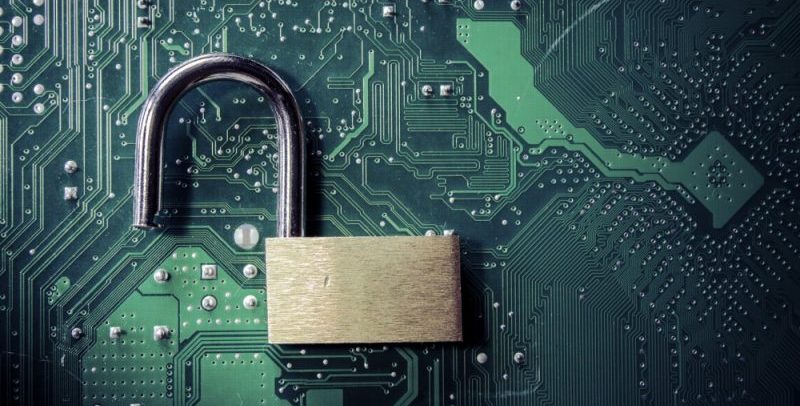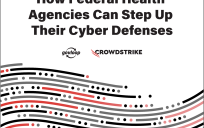By: John W. Lainhart and Christopher Ballister
In early 2015, George Washington University established the Center for Cyber and Homeland Security (CCHS) – a nonpartisan “think and do” tank. CCHS’ mission is to carry out policy-relevant research and analysis on cybersecurity, homeland security and counterterrorism issues. By bringing together domestic and international policymakers and practitioners at all levels of government, the private and non-profit sectors, and academia, CCHS develops strategies to address and confront current and future threats. CCHS is led by Director Frank Cilluffo. Previously, Frank served in the White House as a Principal Advisor to U.S. Secretary of Homeland Security Tom Ridge and Directed the President’s Homeland Security Advisory Council.The CCHS staff has a significant homeland security background that includes extensive experience with U.S. and foreign governments, non-profit organizations, think tanks, first responder organizations and academia.
CCHS has four standing task forces as part of its recent reorganization. These four task forces play a critical role in driving their policy agenda. The membership of each task force includes a mix of individuals from its Board, its Policy Advisory Committee, its senior fellows, participants in its corporate membership program, and other distinguished subject matter experts. Below is a description of each task force and its priority areas of focus.
Cybersecurity Task Force
The Cybersecurity Task Force’s focus is on issues such as assessments of the capabilities and intentions of current cyber threat actors; international governance on cybersecurity; the role of the private sector in cybersecurity, including the concept of “active defense;” corporate governance of cybersecurity; security issues related to the “Internet of Things;” and challenges associated with enhancing cybersecurity-related information sharing.
Counterterrorism and Intelligence Task Force
The Counterterrorism and Intelligence Task Force’s focus is on issues such as foreign fighter activities in Syria, Iraq, Yemen, and other countries, and their impact on homeland threats; efforts to counter radicalization towards violent Islamist extremism, including online radicalization; domestic intelligence and counterterrorism activities, including the role of state and local law enforcement in counterterrorism; and addressing terrorist threats to aviation and other transportation systems.
Homeland Security Strategy and Emerging Threats Task Force
The Homeland Security Strategy and Emerging Threats Task Force’s focus is on issues such as strategic long-term priorities for homeland security, particularly with respect to emerging threats (including biological threats), and technological and societal developments; issues related to the organization, integration, management, and budget of the Department of Homeland Security; and the Congressional oversight of homeland security.
Preparedness and Infrastructure Resilience Task Force
The Preparedness and Infrastructure Resilience Task Force’s focus is on issues such as the security of critical infrastructure systems (e.g., energy, water, telecommunications) from both physical and cyber threats; the security of the global supply chain; developing metrics for assessing infrastructure risks and system resilience; and preparedness against catastrophic threats.
Currently CCHS is undertaking a major project – the Active Defense Task Force (ADTF). The ADTF is focusing on issues resulting from the growing gap between the impact of cyber threats and the ineffectiveness of the private sector’s options for responding to them. It is considering whether there is a greater role for measures that proactively protect companies’ networks and assets in the context of applicable legal, policy, and statutory frameworks. The ADTF recognizes that rules of the road for active defense are needed to elaborate the parameters of acceptable action and guide corporate approaches.
CCHS also has a Program on Extremism that provides analysis on issues related to violent and non-violent extremism. The Program spearheads innovative and thoughtful academic inquiry, producing empirical work that strengthens extremism research as a distinct field of study. The Program develops pragmatic policy solutions that resonate with policymakers, civic leaders, and the general public. To achieve these objectives, the Program brings together a unique team of experts from various continents and a range of disciplines, including government officials with experience in public safety and law enforcement; scholars; former extremists; counter-extremism practitioners providing firsthand assistance to families grappling with radicalization.
In addition, the CCHS holds a number of conferences and symposiums. Examples include the
- “French Anti-Terrorism Efforts,”
- “Estonia Symposium on Cybersecurity and Defense Cooperation,”
- “Policy Forum on Infrastructure Resilience and Mission Assurance for National Security,” and
- the “Annual Strategic Conference of the GW Center for Cyber and Homeland Security.”
We very much support the efforts of the CCHS. Currently, discussions are ongoing about how we can work together in future activities that can help government move forward in developing solutions that promote predictive security intelligence. John Lainhart serves on the Board of Directors, working with Richard Knop and Frank Cilluffo on CCHS strategic initiatives while Christopher Ballister serves as a senior fellow and is a key member of the Active Defense project.
With recent announcements related to security intelligence, using cognitive-based systems, we look forward to working with the CCHS to produce holistic cybersecurity solutions that can provide actionable, meaningful and timely information for CISOs and CIOs to address the most important issues affecting their agency and deter and prevent cyber threats. Please join the CCHS email list to stay informed of the advances being made to secure critical systems and the valuable information they house.
Read our previous blog, “Predictive Security Intelligence: Achieving Holistic Cybersecurity.”





Leave a Reply
You must be logged in to post a comment.